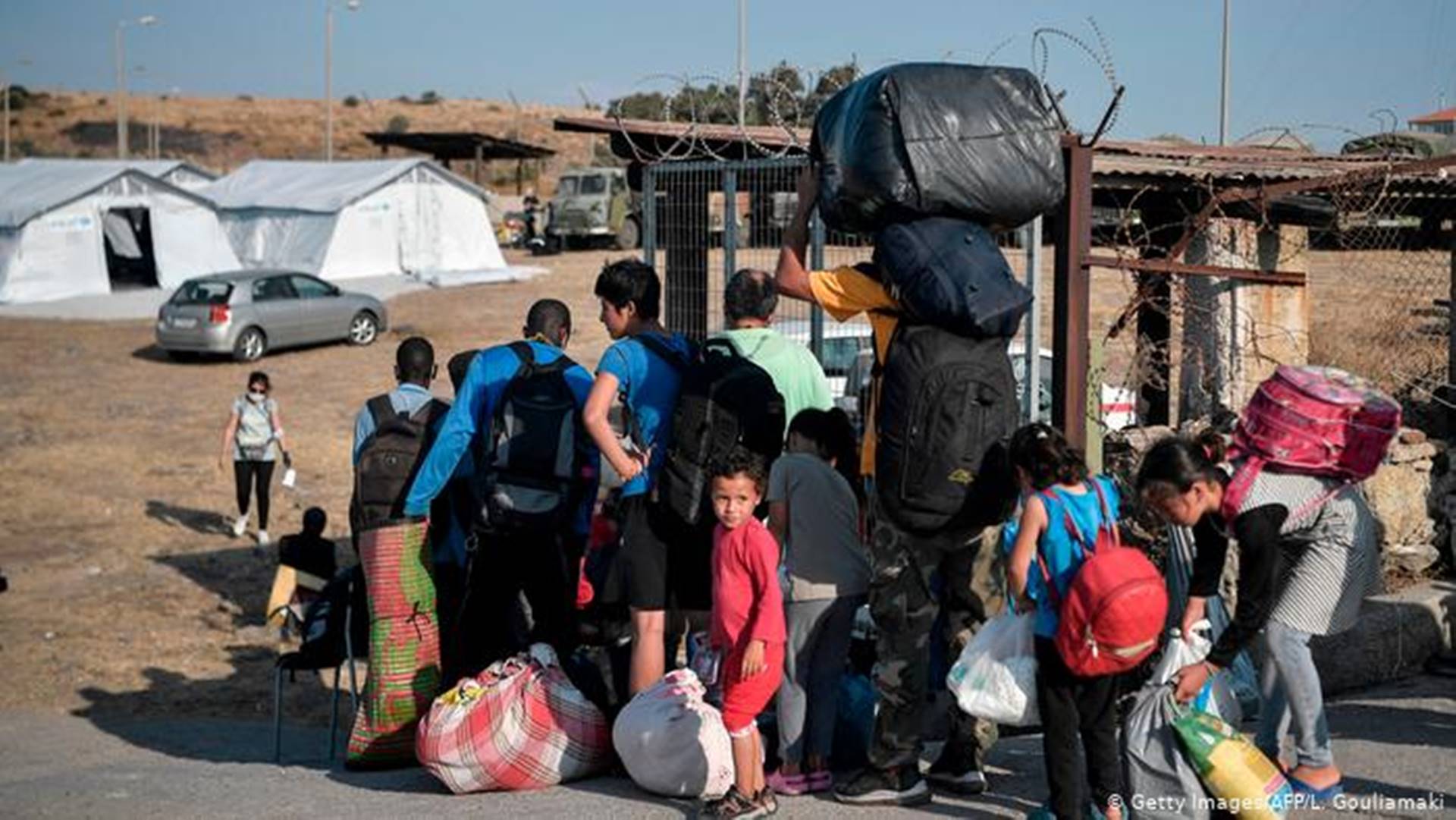Angela Merkel’s government has said Germany will take in additional migrants from Greece and in particular Lesbos. More than 12,000 people were left homeless by fires at the refugee camp Moria.
Germany said on Tuesday it plans to take in 1,553 asylum seekers from Greek islands following mounting criticism at home that it was doing too little in the wake of a devastating fire at a refugee camp in Moria.
The migrants are from 408 families with children that have successfully filed for asylum, government spokesman Steffen Seibert said. He added that the German government was working toward “a far-reaching European solution with receptive member states” to seek to redistribute more people.
Bosnia and Herzegovina’s refugee crisis getting out of hand
Finance Minister Olaf Scholz was the first government minister to formally announce the decision, in a tweet. He suggested that Germany could take in more refugees as part of a European effort.
“Germany will, in a further step, now take in more than 1,500 refugees, mainly families with children, who are currently in Greece. And we are striving for a European aid effort, under the terms of which our country would take in more people in need of protection,” Scholz said.
Deutschland wird in einem weiteren Schritt jetzt mehr als 1500 Flüchtlinge aufnehmen, zumeist Familien mit Kindern, die bislang in Griechenland sind. Und wir bemühen uns um eine europäische Hilfsaktion, in deren Rahmen unser Land weitere Schutzbedürftige aufnehmen wird. #Moria
— Olaf Scholz (@OlafScholz) September 15, 2020
The announcement came after Chancellor Angela Merkel and Interior Minister Horst Seehofer agreed that Germany would accept additional refugees being held on Greek islands. The government had already agreed to accept around 150 unaccompanied minors.
The decision to bring more migrants to Germany follows mounting public pressure for greater German action after a fire at the Moria refugee camp on the Greek island of Lesbos left around 12,000 people without shelter last week. Katrin Göring-Eckardt, a leading Greens politician, had called for Germany to take in 5,000 people.
More than 36,000 Syrian refugees cross border gate to Europe: Minister Soylu
“Every child who escapes the disastrous situation counts,” Göring-Eckardt wrote on Twitter after the government’s announcement. “Taking in 1,500 people from ALL Greek islands is another alibi-offer. Four thousand are living on Lesbos alone, according to the UNHCR (the UN’s refugee agency). Do we leave them in need?”
Jedes Kind, das der katastrophalen Situation entkommt, zählt. 1.500 Menschen von ALLEN griechischen Inseln aufzunehmen, ist aber ein weiteres Alibi-Angebot. Allein auf #Lesbos leben laut UNHCR 4.000 Kinder. Lassen wir sie weiter in Not?
— Katrin Göring-Eckardt MdB (@GoeringEckardt) September 15, 2020
Her colleague Omid Nouripour told DW that while he was “grateful for every person taken in,” such small steps should not be used as an “indulgence,” a reference to the Catholic practice of allowing reduced punishment for sin in exchange for action or financial contribution.
In an initial response, Germany had said it would take in between 100 and 150 unaccompanied minors as part of a joint European initiative.
The newest plan will also include migrants being held in other parts of Greece, not just those coming from Lesbos and Moria, government sources said, adding that this was a key point for the Greek government. They will hail from five islands in total.
https://balkantimes.press/en/refugee-grief-is-overwhelming/
Politicians from Germany’s ruling coalition government had aimed to reach an agreement by Wednesday on how many people they would take in addition to the unaccompanied minors.
Opposition parties like the Greens have dubbed the measures unsatisfactory, calling for a larger intake in the region of 5,000 people.
On Monday, the chancellor had emphasized that the agreement should address more than just the number of migrants Germany would accept. The deal should include a plan for establishing facilities to receive migrants and refugees on Lesbos, with Europe overseeing the financing and management.
This story will be updated with more developments and reactions.
DW / Balkantimes.press
Napomena o autorskim pravima: Dozvoljeno preuzimanje sadržaja isključivo uz navođenje linka prema stranici našeg portala sa koje je sadržaj preuzet. Stavovi izraženi u ovom tekstu autorovi su i ne odražavaju nužno uredničku politiku The Balkantimes Press.
Copyright Notice: It is allowed to download the content only by providing a link to the page of our portal from which the content was downloaded. The views expressed in this text are those of the authors and do not necessarily reflect the editorial policies of The Balkantimes Press.

